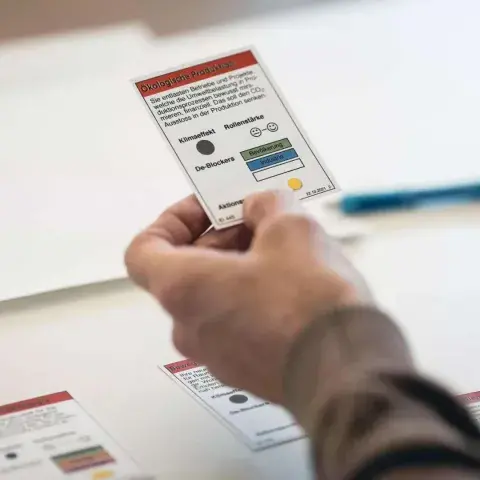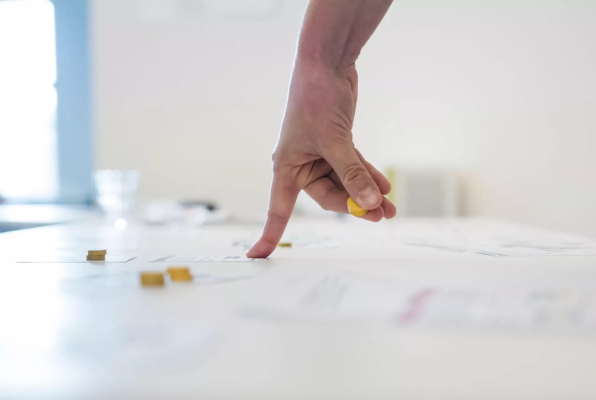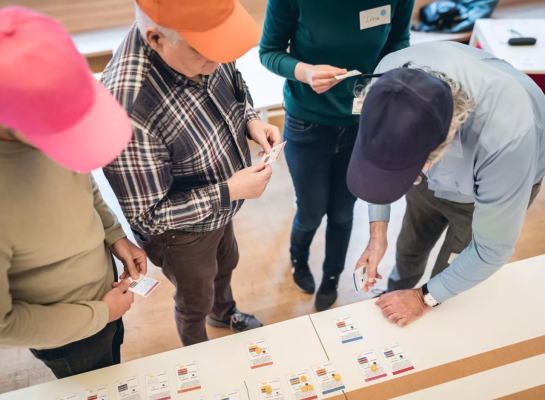
Franklin students join the race to reduce emissions in a climate simulation game like no other! On Wednesday, April 26th, from 9:30-15:30, the postfossilCities simulation game will be hosted for the first time at Franklin University Switzerland. This exciting game, organized by Professor Schultz and Professor Miniero from the Division of Business and Economics, engages undergraduate and graduate students to test climate mitigation measures in an experimental setting. The simulation setting allows students to adopt possibly unfamiliar perspectives of different societal actors, encouraging strategic alliance thinking.
In the 21st century, urban spaces will be society's primary form of organization. Infrastructure construction, renewal, and operation impose significant environmental burdens on the environment. It will take the active involvement of the relevant players to achieve the objectives of Agenda 2030 and the Paris Agreement. The benefits of simulation games are that they allow for playful testing, experience potential development paths, and verify their feasibility. The project develops a simulation game based on databases and models to identify and evaluate potential development pathways toward post-fossil cities.
postfossilCities was developed as part of a Swiss National Science Foundation project (NRP73) led by Dr. Patrick Wäger (Empa), Prof. Dr. Lorenz Hilty (University of Zurich), and Prof. Dr. Daniel Müller (Norwegian University of Science and Technology), together with the project partners Dr. Markus Ulrich (UCS Ulrich Creative Simulations GmbH) and Prof. Dr. Susanne Kytzia (Eastern Switzerland University of Applied Sciences (OST)). Click here for additional information regarding the game, its objectives, and related publications.
The game design grants students an immersive experience of one of the most pressing challenges of our time. There are seven roles of relevant societal actors in post-fossil cities, including politicians, the population, and investors, played by one to four individuals. While playing the game, players pursue their role-specific interests and, at the same time, work towards reducing CO2 emissions while staying within the carbon budget. For this, each role receives action cards with possible measures to implement alone or in collaboration with others. Actors who move forward on their own may lose strength, while actors who collaborate with others gain strength. As the game progresses, time runs continuously, and simulation results from an integrated game model continuously displaying whether or not the actors are on track.
The game has three phases: introduction, simulation, and debriefing. In the introduction phase, participants are introduced to the topic of post-fossil city and get to know the game's rules. Then during the simulation phase, the participants start to play the game by taking on roles, interacting with one another, strategizing, negotiating, and making decisions from the results. After the game is finished, the debriefing phase is when the participants reflect on the outcome and their experience with the game. With this phase, people can see the knowledge they gained and how they apply it to their lives. The game is about imagining what a sustainable city and society could look like and will be facilitated by Dr. Markus Ulrich.
If you want to learn more about the benefits of a post-fossil society and hear from Franklin students how it felt to engage in this unique game, stay tuned for our exclusive post-game coverage!




